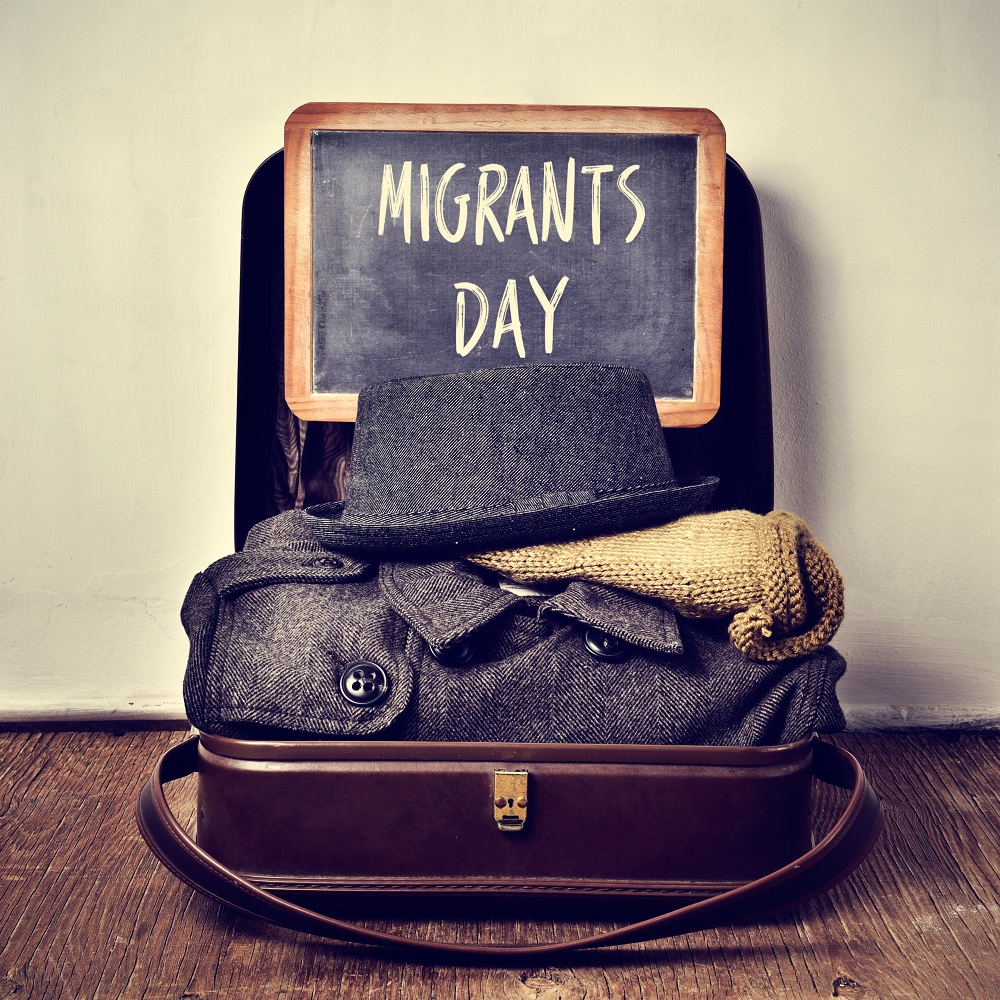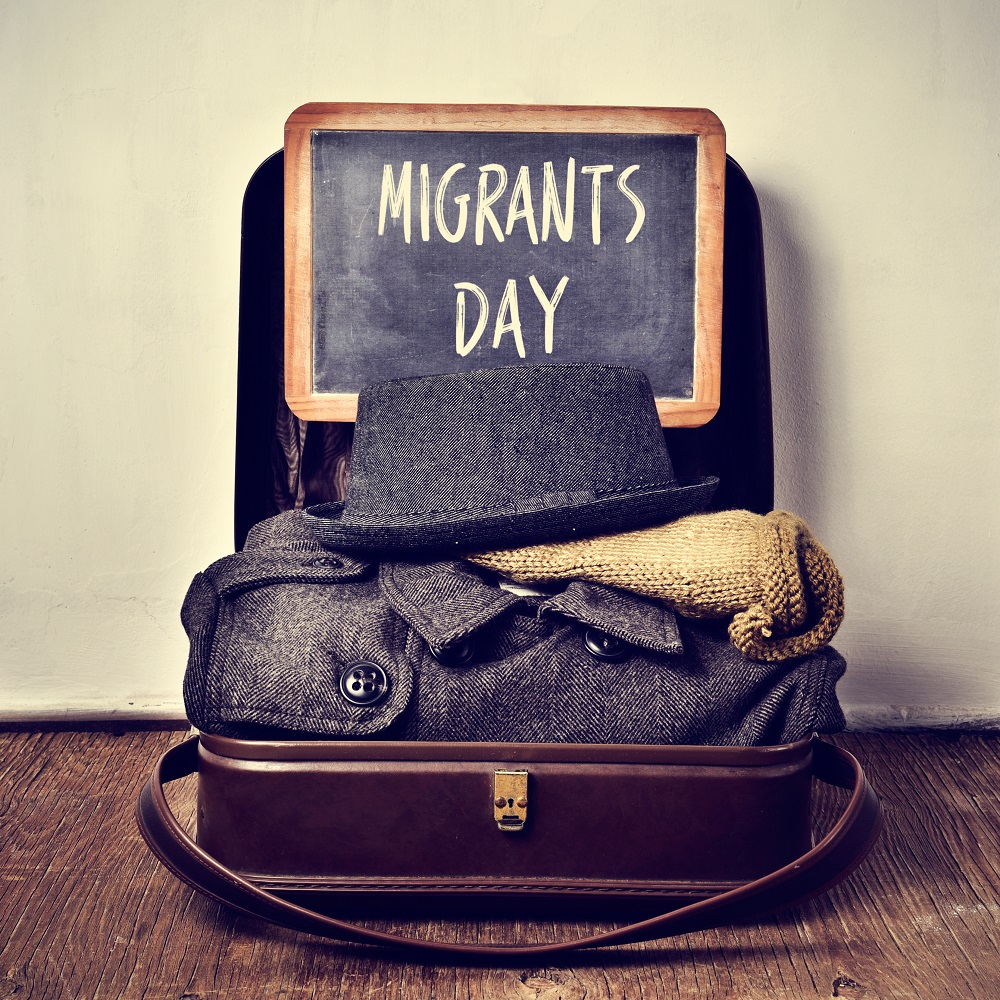Written by Joanna Apap and Ionel Zamfir,

Today, over 258 million persons around the world live outside their country of birth. In 2017, high-income countries hosted 64 %, or nearly 165 million, of the total number of international migrants worldwide. Moreover, most of the growth in the global population of international migrants is due to movements toward high-income countries, which host 64 million of the 85 million migrants added since 2000.
These figures are expected to grow for a number of reasons, including population growth, conflicts,increasing connectivity, trade, rising inequality, demographic imbalances and climate change. Migration provides immense opportunity and benefits – for the migrants, host communities and communities of origin. However, when poorly regulated it can create significant challenges. These challenges include overwhelming social infrastructures with the unexpected arrival of large numbers of people and the deaths of migrants undertaking dangerous journeys.
The large-scale migratory flows affecting several regions in the world in the last several years have brought the plight of persons who are forced to flee their homes due to war, insecurity or persecution more forcefully than ever to the world’s attention. They have also exposed how ill-prepared the international community has been to deal with this challenge and how disproportionate the distribution of the burden of caring for such people has been among countries.
The number of international migrants includes 26 million refugees or asylum seekers, or about 10 % of the total number of migrants in the world. At the end of 2017, almost 20 million were recognised as refugees under the UNHCR mandate – a figure the UN agency considers a record.
Although a majority of the world’s international migrants live in high-income countries, low- and middle-income countries host nearly 22 million, or 84 %, of all refugees and asylum seekers. While critical voices have pointed to the lack of political will in developed countries as an explanation for this state of affairs, the causes are more complex and nuanced. Most often, refugees tend to move to neighbouring countries for practical reasons.
Moreover, there are huge discrepancies not only in the number of refugees hosted in the world across regions and countries, but also in the quality of protection offered. Many of the countries that host refugees, particularly developing countries in Africa and Asia, have either not ratified the Geneva Convention or do not comply with all their obligations. They hold refugees in camps, do not grant them the right to move freely and to work and rely largely on international solidarity to fulfil their basic needs. They do not provide a path to integration and naturalisation, generating protracted refugee situations. This encourages secondary movements of refugees, who try to reach countries offering more adequate protection and integration prospects, such as in Europe. These imbalances among countries and regions have clearly exposed the need for fairer burden sharing and more solidarity across countries.
To meet these growing challenges, the international community has adopted two distinct legally non-binding compacts on refugees and migration, respectively. The latter has received a lot of public attention and been the focus of much political controversy, while the first has been quietly adopted. As some commentators have failed to adequately distinguish between the two,it is important to highlight their distinct scope and role. Refugees are persons fleeing persecution in their home countries, as defined in the Geneva Refugee Convention. Persons who may face torture or cruel, inhuman or degrading treatment or punishment if returned to their countries of origin and thus deserve international protection are treated similarly to refugees under international law. For migrants, on the other hand, there is no international legal definition. The countries that have ratified the Geneva Convention – and this is the case for all EU countries – have clearly defined legal obligations with respect to refugees. This is not the case with migrants, although states are bound to respect general international human rights obligations towards any person on their territory, including migrants – such as the prohibition of arbitrary detention.
The drafting process was initiated in September 2016, when all 193 UN member states adopted the New York Declaration for Refugees and Migrants, paving the way for two non-binding international compacts on refugees, and migration. Two global compacts were prepared and negotiated during two years, a Global Compact for Safe, Orderly and Regular Migration and a Global Compact on Refugees. The Global Compact on Migration was prepared by the International Organization on Migration (IOM) through broad consultations with UN member states and stakeholders. This was endorsed by oral acclamation in Marrakech by164 UN member states after two years of negotiations. The compact on refugees was, on the other hand, drafted by the UN Refugee Agency (UNHCR), which also underwent a similar rigorous consultations process. The Global Compact on Refugees was endorsed by the UN General Assembly on 17 December 2018.Conversely, the EU was both supportive and involved in the UN-launched process for the preparation of both global compacts.
The Global Compact on Migration, comprising of 23 objectives for better managing migration at local, national, regional and global levels, is the first ever UN global agreement on a common approach to international migration in all its dimensions. The global compact is non-legally binding. It is grounded in values of state sovereignty, responsibility-sharing, non-discrimination, and human rights, and recognises that a cooperative approach is needed to optimise the overall benefits of migration, while addressing its risks and challenges for individuals and communities in countries of origin, transit and destination. It will therefore be up to the Member States to implement it in full respect of their sovereignty. The EU has shared competence with Member States with regards to migration, and migration policy is a matter of domestic law.
Addressing issues such as a fairer distribution of refugees (e.g. through broader voluntary participation in UNHCR led-resettlement),better integration of refugees in their host society as well as supporting appropriate conditions for return to their home countries, are among the main objectives of the Global Compact on Refugees. The Global Compact on Refugees also encourages the involvement not only of state actors but also of other stakeholders, such as local authorities and private entities in responding to refugee crises. However, with regard to refugees, the Compact does not include any new commitments compared to the Geneva Conventions, but only practical solutions about how to implement these. The Compact explicitly states that it is non-binding. It also envisages involving refugees themselves and host communities in designing the appropriate policy responses. The Global Compact on Refugees proposes a global refugee forum at ministerial level, which, according to the third draft,will convene every four years from 2019. It will provide participating states with the opportunity to make pledges in various forms, such as providing financial, material and technical assistance to host countries; and providing resettlement places and complementary pathways for admission. The Refugees Compact includes a programme of action, which outlines a threefold set of solutions to end refugee crises, based on voluntary repatriation when conditions allow,integration into the host society and resettlement to third countries.
EU Member States, however, are bound by the EU Treaties to respect human rights and uphold the values of the Union as well as respect UN norms (Articles 2 and 3 TEU). The European Court of Justice and European Court of Human Rights will always have a role should a Member State fail to fulfil its obligations with respect to the EU treaties and,respectively, its human rights obligations. The UN universal periodic review is a further mechanism of oversight as to how well UN member states respect UN norms and values.
To read more on these two compacts, see our forthcoming EPRS briefings:
- A global compact on migration: Placing human rights at the heart of migration management by Joanna Apap
- A global compact : Strengthening international cooperation to ease the plight of refugees in the world by Ionel Zamfir
Visit the European Parliament page on ‘Migration in Europe‘.








[…] Source Article from https://epthinktank.eu/2018/12/17/the-two-first-ever-un-global-agreements-on-a-common-approach-to-in… […]